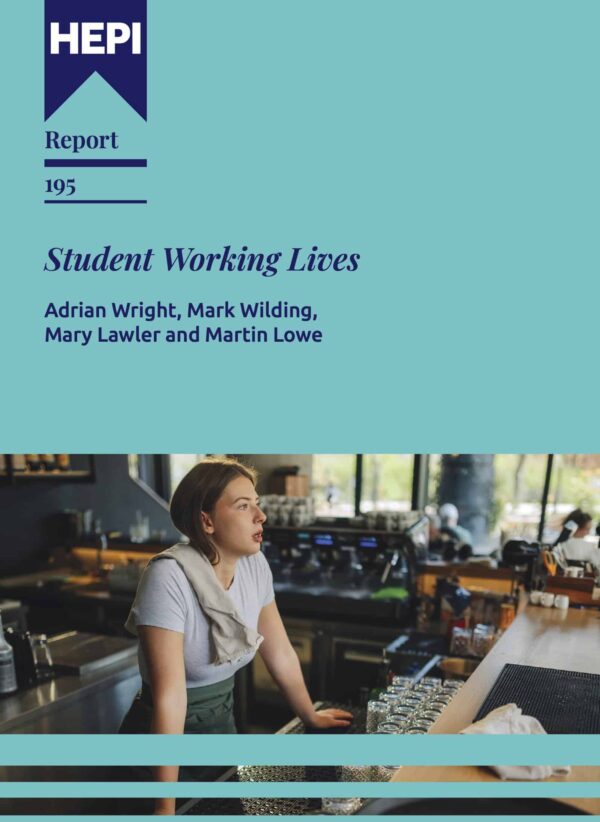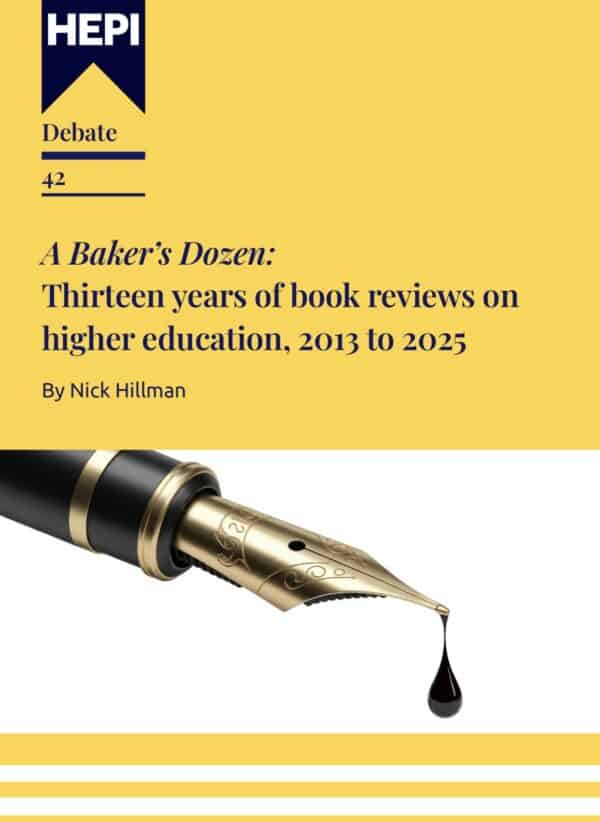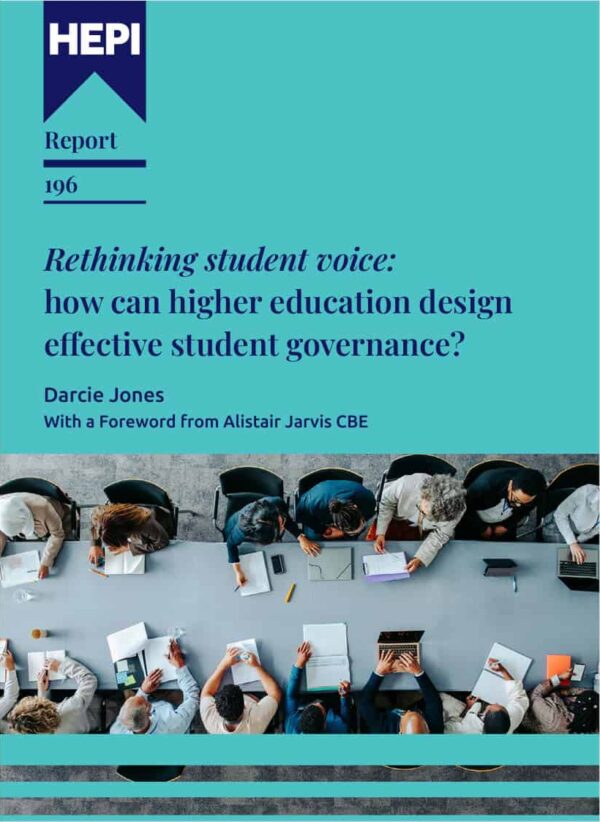Student Working Lives
New report reveals the hidden realities of student employment in UK higher education
A landmark study exploring the growing prevalence and impact of paid work among students in UK higher education, and which demonstrates the hidden realities of the student experience, has today been launched by the Higher Education Policy Institute and the University of Lancashire in partnership with three other universities.
Student Working Lives (HEPI Report 195) has been written by Professor Adrian Wright, Dr Mark Wilding, Mary Lawler, Martin Lowe and offers a comprehensive analysis of how paid work is reshaping the student experience as students juggle study, work and caregiving responsibilities.
As the cost-of-living crisis deepens and maintenance support fails to keep pace, paid work has become a necessity rather than a choice for the majority of students. The report, developed by the University of Lancashire’s Institute for Research in Work, Organisations and Employment, in partnership with the Higher Education Policy Institute (HEPI) and three other universities, suggests two-thirds (66%) of students work to cover their basic living costs while 26% of students work to support their families.
Most are employed in low-paid and flexible sectors, such as health and social care, retail, and hospitality. Furthermore, the study found students work an average of 17 hours a week in paid work, with an overall workload of 50 hours, inclusive of academic work and to travel time.
The key findings of the report are:
- Impact on study – students who worked under 20 hours per week are more likely to be on track for good honours.
- Job quality matters – students in flexible, supportive and more meaningful roles are significantly more likely to achieve good honours degrees.
- Students are time poor – students are working so many hours that studies often come second, with many missing out on core academic and extracurricular experiences.
- Casual contracts and low pay dominate – 38% of students are on zero-hours or casual contracts and 43% report stress, anxiety or depression caused or worsened by work.
- Workplace support is lacking – only 32% of students feel supported by their managers and just 38% by colleagues.
Professor Adrian Wright, Director of the University’s Institute for Work, Organisations and Employment and one of the authors of the report, said:
This study offers a unique insight into students’ everyday experiences in higher education. It challenges the myth of the full-time student and reveals the significant impact paid work has on academic outcomes. Many students are trapped in unsuitable, low-quality jobs. In response, we propose practical solutions for governments, universities and regulators to better support students’ working lives.
The report drew on survey responses from more than 1,000 students and linked institutional data.
Rose Stephenson, Director of Policy and Strategy at HEPI, commented:
This report demonstrates a reality that can no longer be ignored: paid work is now a necessity for most students, not a choice. Many are working long hours in low-paid, insecure jobs simply to cover basic living costs, and the consequence is a 50-hour week that leaves little room for rest, belonging or academic success. We cannot continue designing and delivering a higher education system around the ideal of the full-time residential student when they are now the minority. Students are working incredibly hard to secure their future success, and they deserve a system that supports their efforts. That means honest communication about the real cost of study, maintenance support that reflects actual living expenses, and more flexible teaching models that recognise the realities of modern student life.
The report calls for systemic reform across the higher education sector, including:
- Recalibrating student financial support to reflect actual living costs, creating means-tested maintenance grants for all students experiencing financial hardship, raising maintenance loans in line with actual inflation and updating the parental income thresholds for maintenance loan eligibility.
- Higher education institutions should develop regional partnerships with local employers and authorities to enhance student access to meaningful employment and address regional skills shortages.
- Repositioning university careers services to support meaningful employment during study.
- Developing regional Student Employment Charters to support local labour market conditions, fostering collaboration between educational institutions, employers and local authorities and the principles of good work for students.
Professor Wright added:
The Student Working Lives report offers compelling evidence that paid work is no longer a choice for most students, it is a necessity. Institutions, policymakers, and employers must work together to ensure that paid work complements, rather than compromises, students’ academic success and well-being. We, at the University of Lancashire, are actively integrating these insights into our University of the Future programme, including a shift to block delivery and short-course lifelong learning models to better support students balancing study and work.
The three other universities involved in the research are the University of Liverpool, Buckinghamshire New University and London South Bank University.
Notes to editors
- The University of Lancashire is one of the UK’s leading modern universities, located in Preston, Lancashire, with additional UK campuses in Burnley and Westlakes. Established in 1828 as the Institution for the Diffusion of Knowledge, the University has grown into a vibrant, international institution with a strong commitment to academic excellence, student success, and impactful research.
- The Higher Education Policy Institute was founded in 2002 to influence the higher education debate with evidence. HEPI is UK-wide, independent and non-partisan. HEPI is funded by organisations and higher education institutions that wish to support vibrant policy discussions, as well as through events. HEPI is a company limited by guarantee and a registered charity.








Comments
Jonathan Alltimes says:
What about teaching-led universities ending the summer break, so as to shorten the length of the degree?
Fifty plus hours per week was normal for science undergraduates at least since the 1970s. Contact time of 32 hours per week plus at least 10 hours of coursework and if you didn’t have rich parents or didn’t want an overdraft, you worked one day a week.
Are we moving towards a continental model or like the OU, where degrees may take several years to complete?
Reply
Add comment